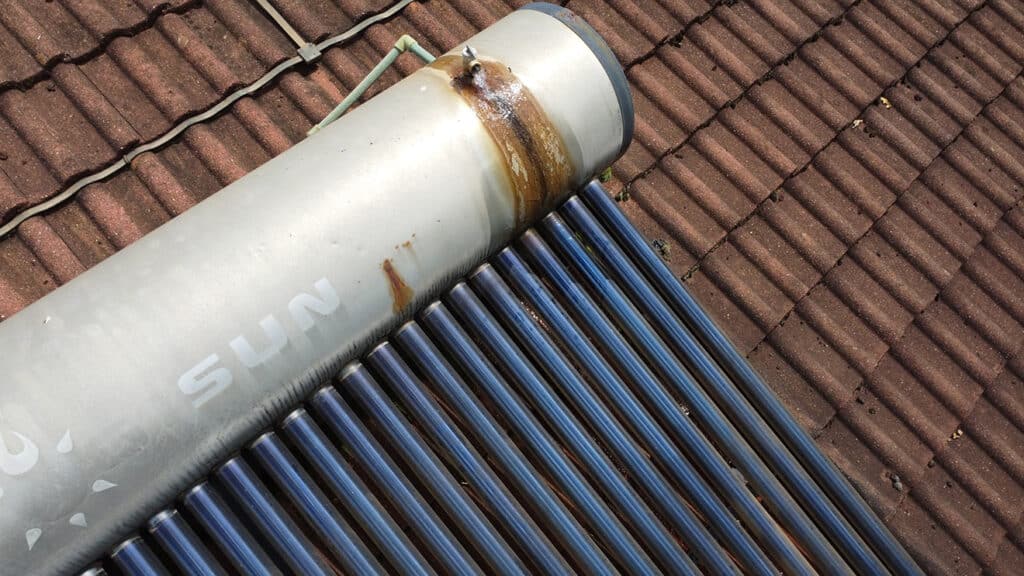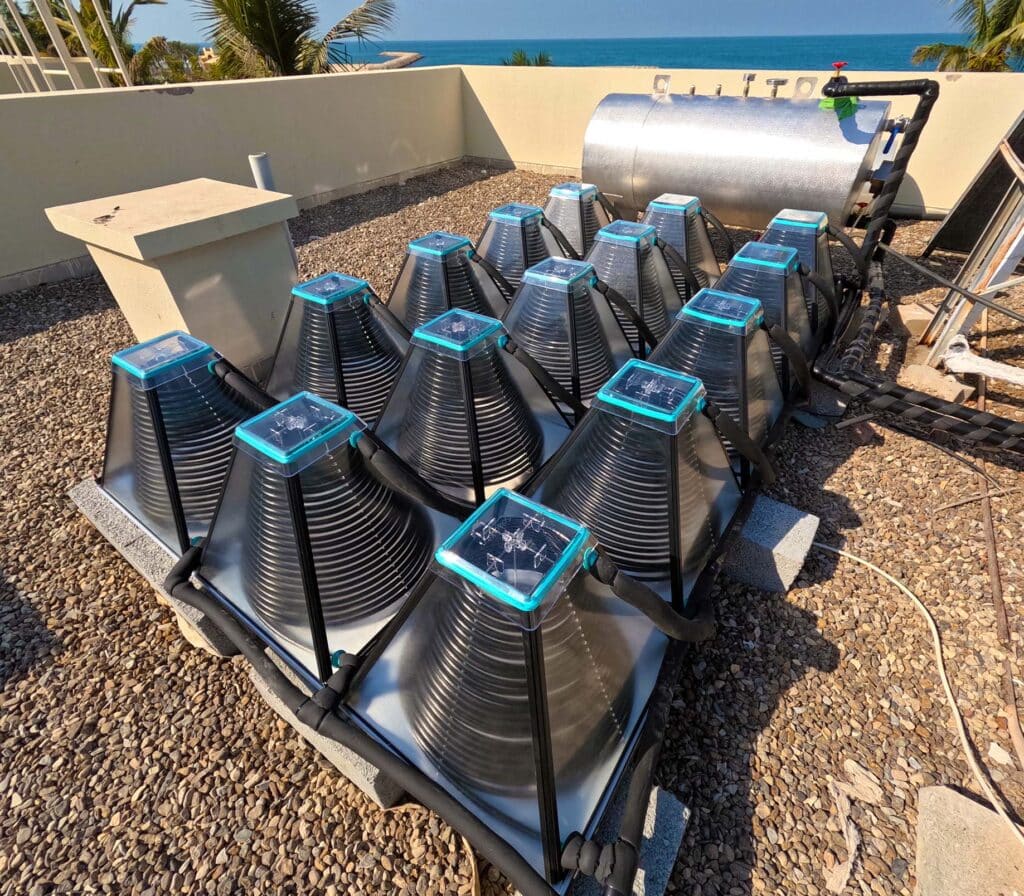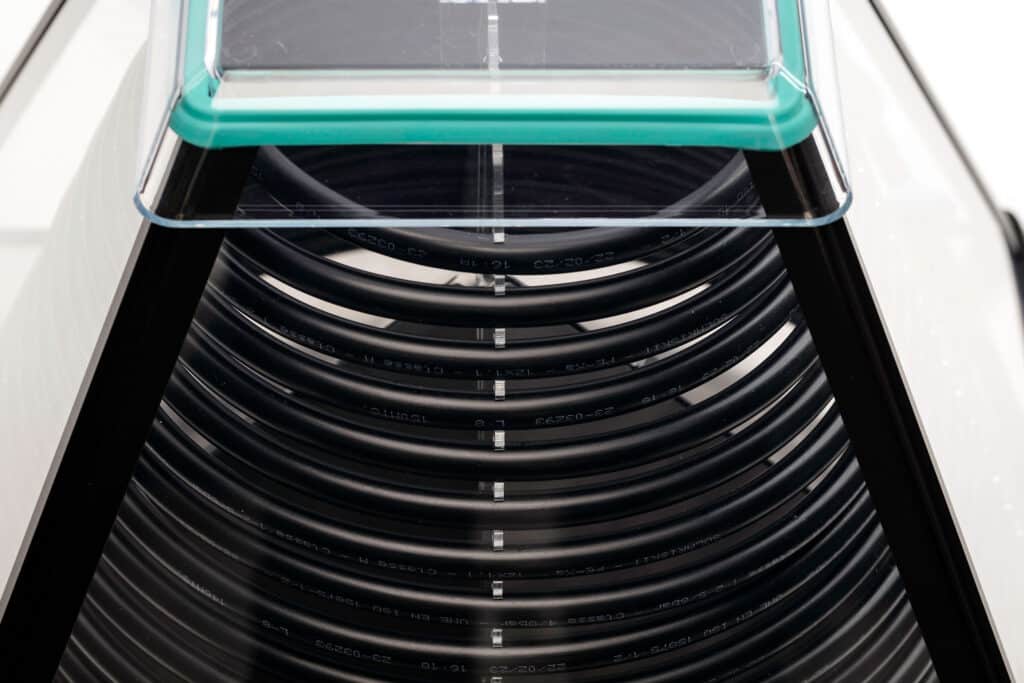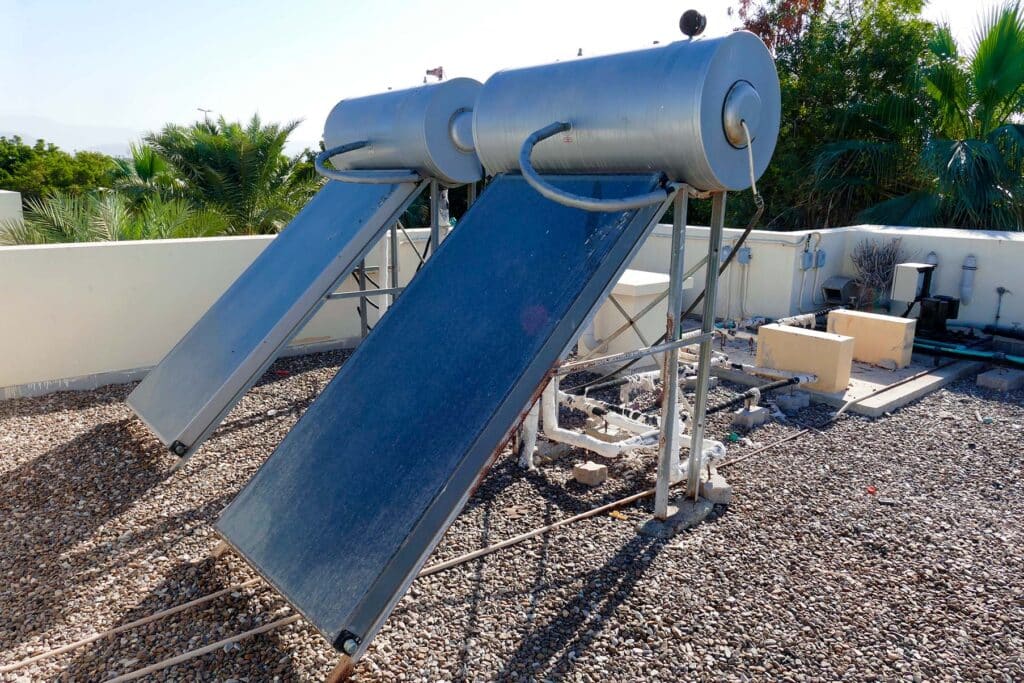Solar hot water systems (SHWS) are often seen as ideal for regions with abundant sunshine and high temperatures. Places like the United Arab Emirates (UAE), with its intense solar radiation and long sunny days, appear to be perfect candidates for widespread solar water heating adoption. However, despite the favourable solar potential, many types of SHWS face a unique set of challenges in such hot climates. Understanding these challenges is key to designing more effective, efficient, and sustainable systems for these regions.
One of the most significant challenges for solar hot water systems in hot climates is overheating. Since solar thermal systems are designed to absorb solar radiation and convert it into heat, excessive ambient temperatures combined with prolonged sun exposure can push these systems beyond their optimal temperature range. The issues is often experienced in peak summer periods when hot water consumption is reduced. Modern solar thermal collectors can ‘stagnate’
Consequences of Overheating Include:

An evacuated tube solar collector installed in Kenya showing signs of damage from overheating
In regions like the UAE, its important to remedy the issue of overheating. This can be done from a system and component level. Passive or thermosyphon type systems where there is no pump and water is circulated via natural convection are particularly susceptible to damage from overheating as the heating process can not be easily controlled. An active or pumped type solar hot water system is recommended as the heating process is controlled using a temperature controller. This will at least protect the hot water storage tank from over heating, but not the solar collectors! SolarisKit’s flat-packed, prismatic solar collectors have been specifically designed and engineered for use in sunny and hot climates like the UAE and will only heat to a maximum temperature of 90degC making it safer and more reliable.

SolarisKit solar collectors installed at Rixos Hotel in the UAE have been designed to avoid overheating issues in sunny and warm climates
In regions like the UAE, water is often desalinated and tends to be hard—rich in calcium and magnesium. When this hard water is heated, it leaves behind scale deposits on the inner surfaces of collectors, pipes, and storage tanks.
Impact of Scaling:
Limiting heating temperature and the choice of system materials is key to tackle this issue. Systems using copper which reach high temperatures should be avoided. Smooth polymer materials are less prone to build-up and scaling making them a good choice, but care must be taken to make sure the system does not reach an unsafe temperature for these materials. The SolarisKit solar collector is made using a high quality engineered thermoplastic material which is smooth and resistant to limescale building up. It provides a new solar hot water solution addressing the issue of scaling.

The SolarisKit solar collector uses a polymer absorber coil which resists limescale build-up
The UAE experiences frequent dust storms and high particulate matter in the air. These environmental factors significantly affect solar hot water systems.
Issues Caused by Dust:

A flat plate collector solar hot water system installed in the UAE
Another problem is the mismatch between hot water production and usage patterns. In extremely hot regions, the demand for hot water is often lower during the summer, which coincides with peak solar energy availability.
Consequences of Demand Mismatch:
While solar radiation is abundant, efficient storage of hot water remains a challenge. Heat losses due to high ambient temperatures, especially at night when the temperature drops, can impact the effectiveness of storage tanks.
Key Storage Challenges:
Many solar hot water systems are designed in temperate or moderately warm regions and are not optimized for the extreme conditions of the Gulf.
Design Limitations Include:
Effective performance of SHWS requires regular maintenance and user engagement. Select a partner who is able to offer a Service and Maintenance package with their system.
Maintenance Challenges:
To overcome these challenges, a combination of technological, design, and policy solutions must be implemented:
Solar hot water systems hold great promise for sunny and hot regions like the UAE, but they are not without their challenges. Overheating, scaling, and issues with dust, all contribute to their underutilisation. However, with the right combination of innovation, localised design, and supportive policies, these systems can become a cornerstone of sustainable water heating in the region. By addressing these challenges head-on, the UAE and similar regions can take full advantage of their most abundant natural resource: the sun.
If you are seeking an expert local solar hot water partner, please contact SolarisKit today. We will be happy to support your project!
Get in touch with SolarisKit to explore the right solar water heating solution for your needs.